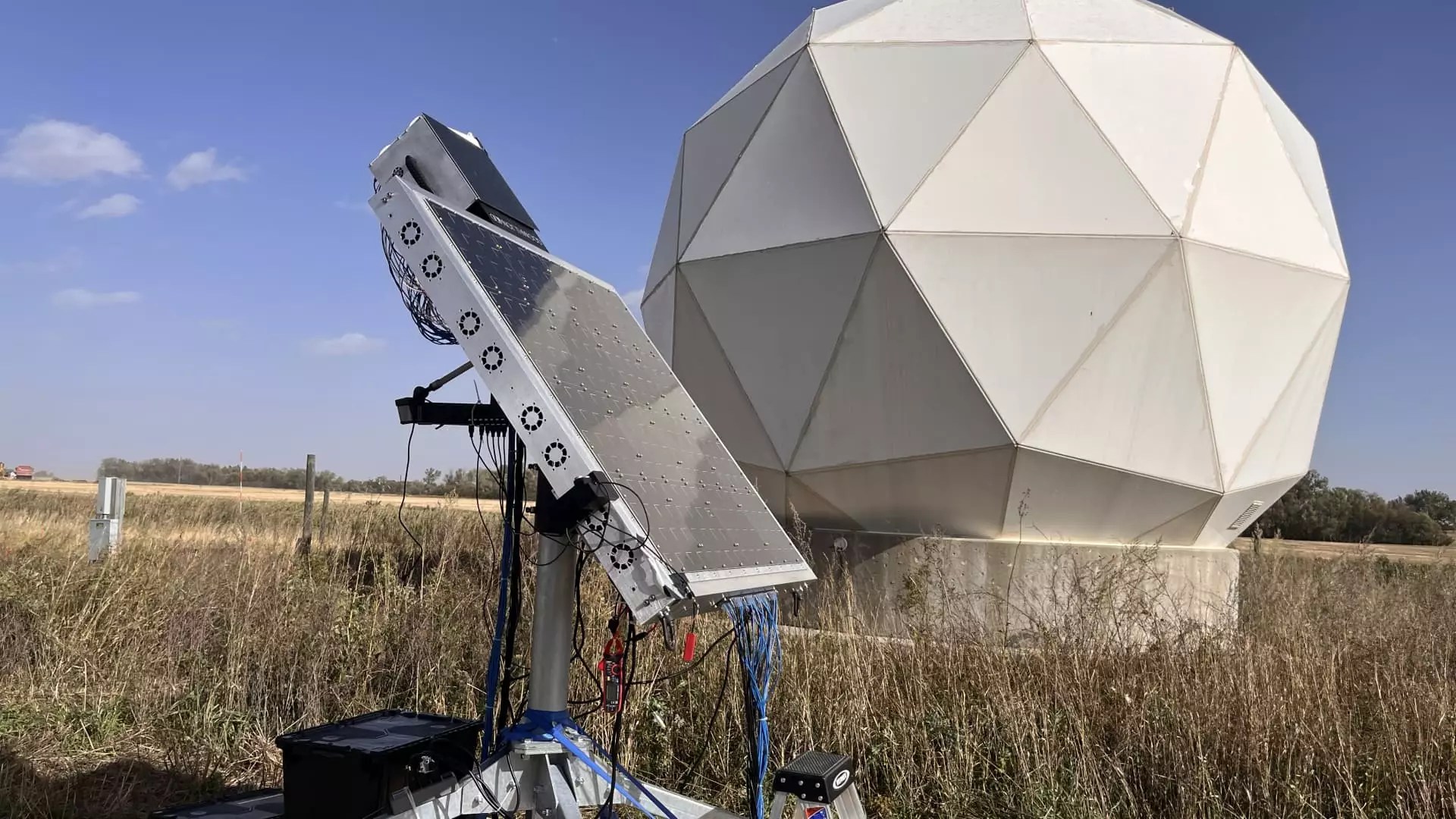In the increasingly competitive landscape of space technology, Northwood Space is emerging as a notable player, spearheaded by its innovative CEO, Bridgit Mendler. This startup, which came to public attention earlier this year in El Segundo, California, is focusing on transforming ground station connectivity essential for satellite operations. As satellite deployment continues to escalate, the need for efficient ground support systems has never been more pressing. Northwood Space aims to address this critical gap by developing cutting-edge phased array technology to facilitate more robust communication links with satellites.
The core of Northwood’s strategy lies in its development of the Portal system—a revolutionary approach to ground stations designed to surpass traditional parabolic dish antennas that dominate the market. Mendler emphasizes that Northwood’s technology will allow for simultaneous connections to up to ten satellites, drastically increasing the efficiency of current solutions, which typically manage only one to three links at a time. As she articulated, this move is not just about improving capacity; it is about redefining standards for connectivity within the satellite communications domain.
Northwood’s commitment to enhancing ground network capabilities speaks volumes about its vision. The company identifies ground stations as “the third leg of the stool” in the triad of space technology, alongside rockets and satellites. This recognition opens the door to revitalizing an industry segment historically viewed as stagnant and reliant on outdated technologies and high costs.
A significant leap for Northwood took place recently when the team successfully conducted a telemetry, tracking, and control (TT&C) test in Maddock, North Dakota. This pivotal test involved a prototype antenna, affectionately named “Frankie,” establishing a bi-directional communication link with a Planet Labs satellite. The successful validation of the prototype, achieved in just four months, marks a critical milestone in Northwood’s ambitious journey. Mendler noted the accomplishment, highlighting how they achieved seamless communication, allowing Planet Labs to operate its satellite without any additional intervention.
Joseph Breu, Planet’s Senior Director of Global Ground Networks, underscored the importance of this milestone, acknowledging that Northwood is tackling historical challenges related to cost and scalability in the ground station sector. With Northwood’s rapid development cycle, it is clear that the startup does not merely aim to follow established practices but to disrupt and innovate them.
The concept of Ground Stations as a Service (GSaaS) encapsulates a burgeoning market where companies aim to streamline and enhance the management of Earth-based space infrastructure. Notably, tech giants like Amazon are already making inroads with services like AWS Ground Station, while established satellite communication companies, such as Eutelsat, pursue lucrative infrastructural projects. Northwood’s Portal system steps into this arena with a aim to pioneer new efficiencies and capabilities.
Mendler draws a parallel to the evolution of the cellular industry, illustrating how shared infrastructures such as cell towers led to the release of assets by fully integrated players in favor of more efficient, specialized companies. In her view, this shared model is crucial to ushering in a new era in satellite communication, one that redefines industry norms while accommodating the pressing demand for scalable ground solutions.
Plans are already in motion for Northwood to deploy its Portal sites globally, with strategic assessments underway across the U.S., Europe, Australia, and New Zealand. The aim is to enable data rates of over one gigabit per second per beam, further enhancing connectivity for the growing number of operational satellites. As traditional models struggle under the weight of demand, Northwood’s vision for the future stands in stark contrast—it is a forward-thinking strategy that seeks to harmonize and elevate the ground station landscape, making it a more agile and capable component of modern space exploration.
In the face of rapid technological advancement and the relentless quest for innovation, Northwood Space has established itself as a frontrunner. Mendler’s vision, underscored by the successful test of their prototype, signals not just a new company but a transformative approach to addressing the challenges of satellite connectivity. The convergence of technology and growing operational needs in space make it evident that Northwood is poised to reshape the industry in significant ways.


Leave a Reply